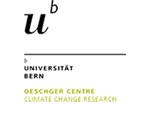Plenary Speaker - Kathy Willis

Downloads
> View the online video with slides
> Download the powerpoint presentation (pdf)
Biography
Kathy Willis, Department of Zoology
University of Oxford UK
kathy.willis@zoo.ox.ac.uk
Professor Kathy Willis holds the Tasso Leventis Chair in Biodiversity in the department of Zoology, University of Oxford and is Director of the Biodiversity Institute, Oxford Martin School and head of the Long Term Ecology Laboratory. She has been involved with research and teaching in biodiversity, conservation and management for the past 20 years at both the Universities of Oxford and Cambridge. Scientific research is focused on the determination of biodiversity baselines and the ecological and evolutionary processes responsible for ecosystem variability, thresholds and resilience using both palaeoecological and contemporary ecological data. Recent research has ranged from developing a new proxy for detection of variability of UV-B flux through time to the development of web-based decision support tools to determine important regions for biodiversity, resilience and the ecosystem service value of landscapes outside of protected areas. Translation of biodiversity science into policy and management is another research focus.
Abstract: Climate change, biodiversity and ecosystem service provision through time and space
Traditionally, research to determine the impacts of climate change on biodiversity has tended to focus on direct species interactions. Much excellent work has been carried out for a whole range of plant and animal species to determine rates and directions of species movements in response to climate change and palaecological studies have provided many important insights into this work. More recently, however, the focus has shifted somewhat from attention on the individual species/communities, to the influence of climate change on the ecosystem services provided by biodiversity. These services, which provide the benefits that humans receive from the natural functioning of healthy ecosystems, are derived from ecosystem processes and functions (i.e. the physical, chemical and biological interactions between organisms and their environment) and are typically organized into four groups: supporting (e.g. nutrient cycling), regulating (e.g. erosion protection, carbon storage), provisioning (e.g. timber and fuel) and cultural services (MEA 2005).
Many governments are now assessing the ecosystem services provided by their in-country biodiversity (e.g. UK NEA, 2011) and devising policies for their conservation and management. Achieving sustainable management of ecosystems, however, depends upon the availability of accurate information about the variation in ecosystem service provision across space and time (de Groot, 2010) and an understanding of responses of ecosystem components to drivers of change. What is becoming increasingly apparent from these assessments is that whilst there is considerable information and methodologies available to map a static picture of current ecosystem service provision, far less is known about variations through time and drivers of change. This talk will highlight, through examples, the huge potential of palaeoecological research in filling this important knowledge gap and providing information that is of direct relevance not only to the scientific community but to governments and habitat managers involved in local, regional and global landscape planning.
References
de Groot, R.S., Alkemade, R., Braat, L., Hein, L., Willemen, L., 2010. Challenges in integrating the concept of ecosystem services and values in landscape planning, management and decision making. Ecological Complexity 7, 260-272.
MEA - Millennium Ecosystem Assessment (2005)
UK NEA – UK National Ecosystem Assessment (2011)















